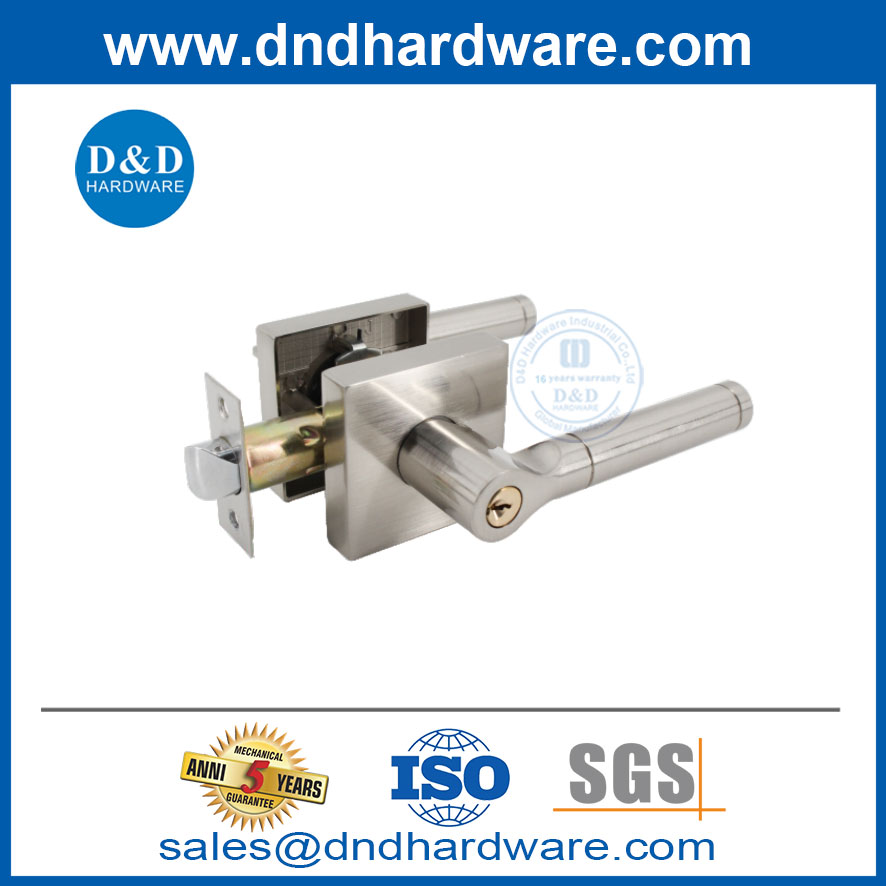Views: 0 Author: Site Editor Publish Time: 2023-12-22 Origin: Site

Doors, the entry points to our spaces, serve as gatekeepers of security, aesthetics, and functionality. Behind every door is a nuanced selection of hardware that caters to specific needs, whether in commercial or residential settings. While the basic purpose remains the same – facilitating entry and exit – the demands and considerations for door hardware vary significantly. This exploration delves into the differences between commercial and residential door hardware, shedding light on the unique features that cater to the distinct requirements of each domain.
Commercial spaces, characterized by high foot traffic and frequent use, demand door hardware that can withstand the rigors of constant operation. Commercial door hardware is engineered for durability, often featuring heavy-duty materials such as stainless steel or solid brass. These materials provide resilience against wear and tear, ensuring that the hardware remains functional and secure despite frequent use.
In addition to robust construction, commercial door hardware often incorporates features like reinforced strike plates and heavy-duty latches to enhance security. These elements contribute to the longevity and reliability of the hardware in environments such as office buildings, retail spaces, and healthcare facilities where doors are in constant motion.
Security is a paramount concern in commercial settings, necessitating sophisticated access control systems integrated into door hardware. Commercial door hardware often includes components compatible with electronic access control systems, allowing for keyless entry through key cards, key fobs, or biometric authentication. These advanced systems provide businesses with the flexibility to manage access permissions efficiently and monitor entry and exit activities.
Furthermore, commercial door hardware may incorporate features like panic bars or exit devices to ensure swift and secure egress during emergencies. These safety measures align with the stringent regulations and codes governing commercial spaces, emphasizing the importance of seamless evacuation procedures.
Residential door hardware places a significant emphasis on aesthetics and style, catering to the personal preferences and design sensibilities of homeowners. Unlike the utilitarian focus of commercial hardware, residential hardware is often chosen as much for its visual appeal as for its functional attributes.
Materials such as brass, bronze, or nickel are popular choices for residential door hardware, allowing homeowners to coordinate with the overall design theme of their homes. Additionally, intricate designs, decorative backplates, and a variety of finishes contribute to the aesthetic enhancement of residential doors. The goal is to seamlessly integrate the hardware into the overall interior design, elevating the visual appeal of the space.
Residential spaces prioritize privacy and convenience, influencing the features incorporated into door hardware. Many residential doors feature privacy locks for bedrooms and bathrooms, allowing occupants to secure their personal spaces. Lever handles or knob designs with integrated locks provide an elegant and functional solution for residential interiors.
Additionally, residential door hardware often includes features such as door knobs with built-in privacy buttons or turn locks, offering a tactile and intuitive way for homeowners to control access within their homes. These elements contribute to the overall comfort and livability of residential spaces.
The locking mechanisms employed in commercial and residential door hardware vary to meet the distinct security needs of each environment. Commercial settings often require sophisticated and keyless entry systems, including electronic keypads or proximity card readers. These systems provide a high level of control over access and are well-suited for managing large numbers of users.
In contrast, residential door hardware frequently relies on traditional keyed locks for exterior doors, offering homeowners a familiar and straightforward means of securing their homes. Deadbolts and mortise locks, designed with residential security in mind, provide reliable protection while aligning with the simplicity that homeowners prefer.
Commercial door hardware tends to prioritize standardization and integration with building-wide systems. This ensures uniformity and centralized control over security measures. In contrast, residential door hardware offers a greater degree of customization to suit individual preferences. Homeowners have the flexibility to choose hardware that complements their interior design, from coordinating finishes to selecting unique and decorative styles.
This customization extends to the integration of smart home technologies, allowing residential door hardware to be part of comprehensive home automation systems. Smart locks, doorbell cameras, and integrated security systems provide homeowners with advanced control and monitoring capabilities.
In the realm of door hardware, the distinctions between commercial and residential applications are both subtle and profound. While both serve the fundamental purpose of securing and enhancing access to spaces, the unique demands of each environment shape the design, features, and materials of the hardware.
Commercial door hardware, built for endurance and security in high-traffic settings, incorporates robust materials and advanced access control systems. Residential door hardware, on the other hand, prioritizes aesthetics, privacy, and customization, offering homeowners a blend of style and functionality.
Understanding these differences allows architects, builders, and homeowners to make informed decisions when selecting door hardware, ensuring that the chosen hardware not only meets the functional requirements of the space but also aligns with the overall design and security goals. Whether in a bustling office building or a cozy home, the right door hardware serves as a seamless blend of form and function, contributing to the safety, style, and identity of the spaces we inhabit.